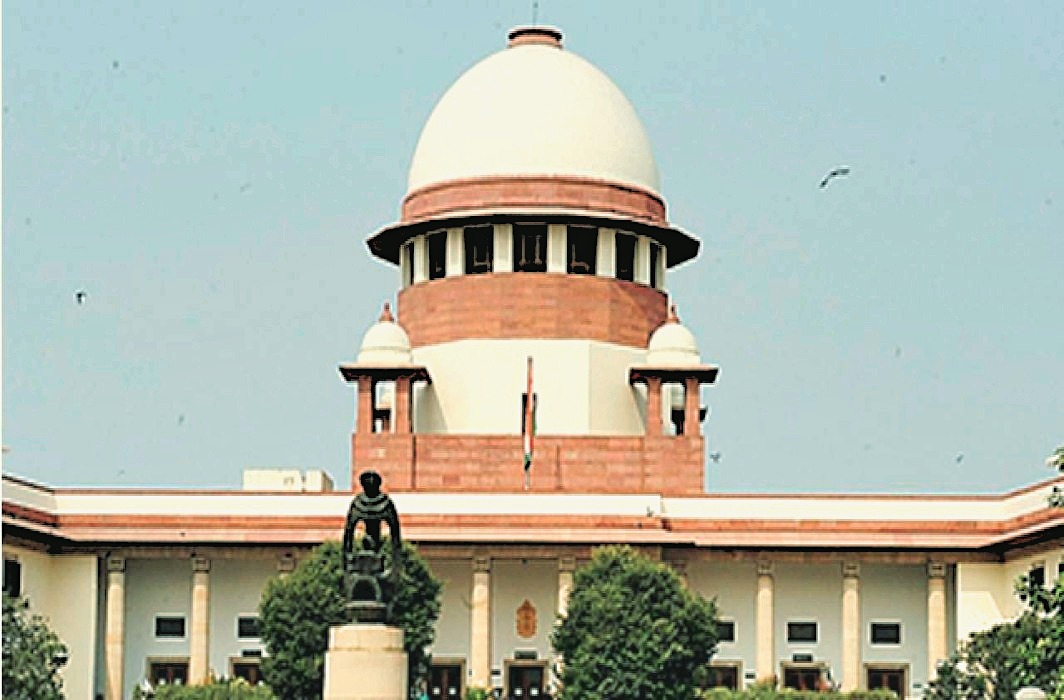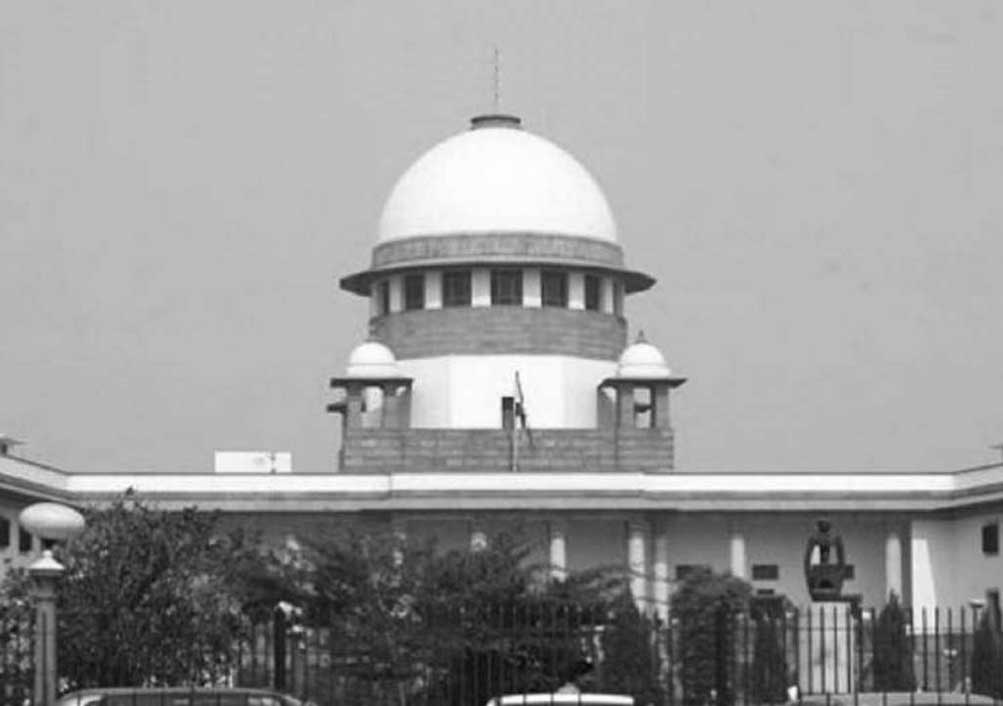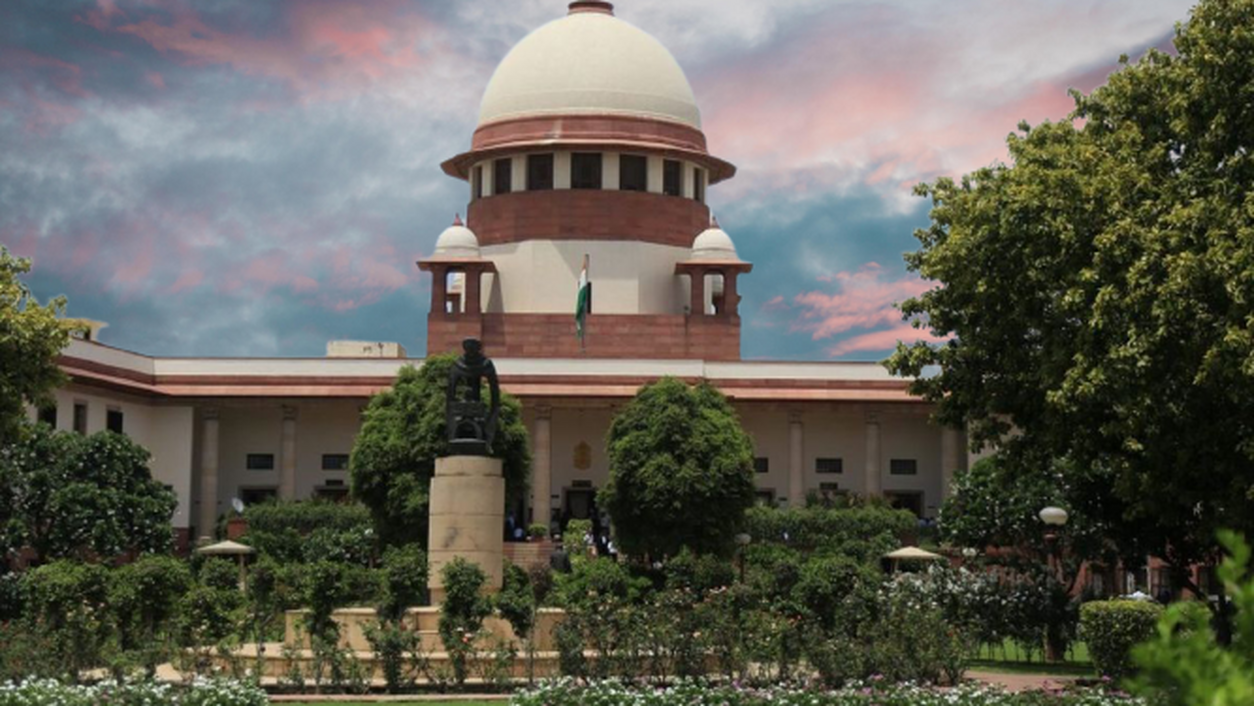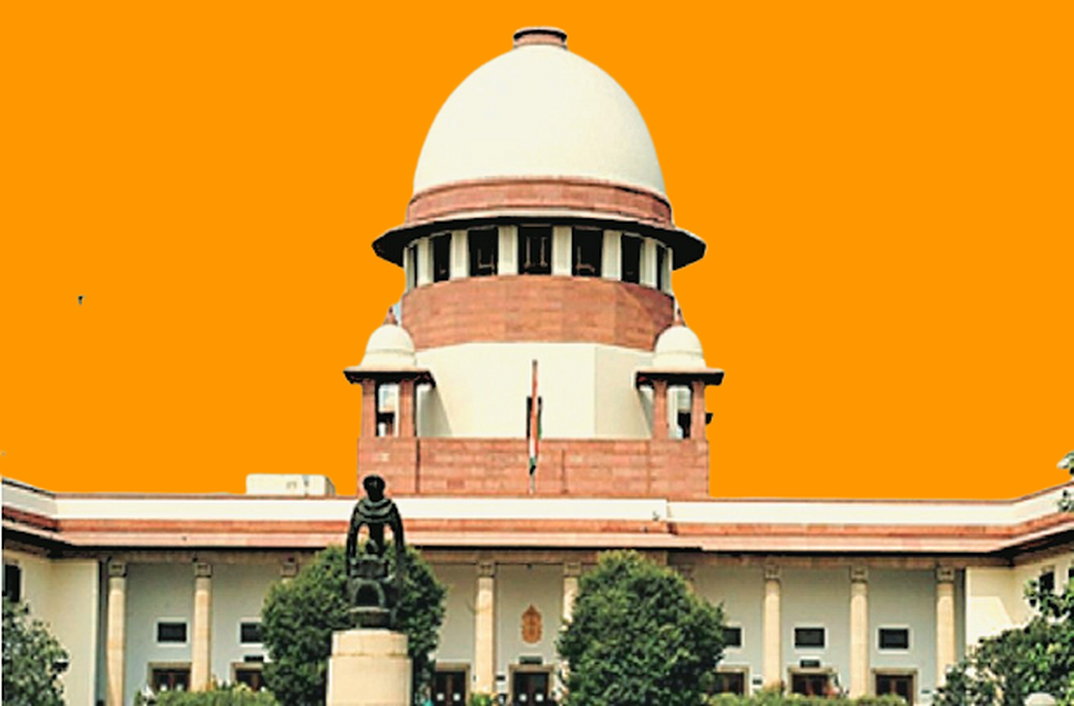‘Not iniquitous, draconian or harsh on the taxpayers’: SC junks appeal of Staff Unions & Associations of various banks challenging vires of Section 17(2)(viii) of Income Tax Act, 1961 & Rule 3(7)(i) of Income Tax Rules, 1962
Justices Sanjiv Khanna & Dipankar Datta [07-05-2024]

Read Order: ALL INDIA BANK OFFICERS'' CONFEDERATION v. THE REGIONAL MANAGER, CENTRAL BANK OF INDIA, AND OTHERS [SC- CIVIL APPEAL NO. 7708 OF 2014]
LE Correspondent
New Delhi, May 9, 2024: The Supreme Court has held Rule 3(7) of the Income Tax Rules, 1962 to be intra vires Article 14 of the Constitution insofar as it treats the Prime Lending Rate of SBI as the benchmark. The Top Court has also opined that the enactment of subordinate legislation for levying tax on interest free/concessional loans as a fringe benefit is within the rule- making power under Section 17(2)(viii) of Income Tax Act, 1961 and the same does not lead to an excessive delegation.
The Division Bench of Justice Sanjiv Khanna and Justice Dipankar Datta was adjudicating upon the appeals filed by staff unions and officers associations of various banks, impugning judgments which dismissed their writ petitions, where the vires of Section 17(2)(viii) of the Income Tax Act, 1961 or Rule 3(7)(i) of the Income Tax Rules, 1962 or both, were challenged.
Section 17(2)(viii) of the Act includes in the definition of perquisites. Section 17(2) of the Act specifies a list of benefits/advantages, incidental to employment, and received in excess of salary, which are made taxable as perquisites. Section 17(2)(viii) is a residuary clause that authorizes a subordinate rule-making authority to prescribe any other fringe benefits or amenities that are liable to taxation as perquisites, any other fringe benefit or amenity, as may be prescribed. The present Section 17(2)(viii) contains similar stipulations as erstwhile Section 17(2)(vi), reference to Chapter XIIH only being deleted.
Rule 3 of the Rules prescribes additional fringe benefits or amenities, taxable as perquisites, pursuant to Section 17(2)(viii). It also prescribes the method of valuation of such perquisites for taxation purposes. Rule 3(7)(i) of the Rules stipulates that interest-free/concessional loan benefits provided by banks to bank employees shall be taxable as fringe benefits or amenities if the interest charged by the bank on such loans is lesser than the interest charged according to the Prime Lending Rate (PLR) of the State Bank of India (SBI).
Section 17(2)(viii) and Rule 3(7)(i) were challenged on the grounds of excessive and unguided delegation of essential legislative function to the Central Board of Direct Taxes (CBDT). Rule 3(7)(i) was also challenged as arbitrary and violative of Article 14 of the Constitution insofar as it treats the PLR of SBI as the benchmark instead of the actual interest rate charged by the bank from a customer on a loan.
As per the Bench, the effect of Rule 3(7)(i) is twofold. First, the value of interest-free or concessional loans is to be treated as other fringe benefit or amenity for the purpose of Section 17(2)(viii) and, therefore, taxable as a perquisite. Secondly, it prescribes the method of valuation of the interest-free/concessional loan for the purposes of taxation.
The Bench further explained the role of the legislature in delineating the meaning of terms through explicit definitions and said, “The legislature is assumed to be aware of the well-understood meaning attributed to the word/expression, and by necessary implication the legislature by not prescribing a fixed and exact definition, ascribes the prevalent meaning assigned to the word/expression in common parlance or commercial usage. This would include meaning assigned to technical words in a particular trade, business or profession, etc. when the legislation is concerning a particular trade, business or transaction. This rule equally applies to construing words or expressions in a taxation statute.”
The two main issues before the Bench were whether section 17(2)(viii) and/or Rule 3(7)(i) lead to a delegation of the essential legislative function to the CBDT; and whether Rule 3(7)(i) arbitrary and violative of Article 14 of the Constitution insofar as it treats the PLR of SBI as the benchmark.
The Bench observed that the subordinate authority's power under Section 17(2)(viii), to prescribe any other fringe benefit or amenity as perquisite is not boundless. It is demarcated by the language of Section 17 of the Act. Anything made taxable by the rule-making authority under Section 17(2)(viii) should be a perquisite in the form of fringe benefits or amenity. Therefore, the provision clearly reflects the legislative policy and gives express guidance to the rule-making authority.
“We are of the opinion that the enactment of subordinate legislation for levying tax on interest free/concessional loans as a fringe benefit is within the rule- making power under Section 17(2)(viii) of the Act. Section 17(2)(viii) itself, and the enactment of Rule 3(7)(i) is not a case of excessive delegation and falls within the parameters of permissible delegation. Section 17(2) clearly delineates the legislative policy and lays down standards for the rule-making authority. Accordingly, Rule 3(7)(i) is intra vires Section 17(2)(viii) of the Act. Section 17(2)(viii) does not lead to an excessive delegation of the essential legislative function”, the Bench held.
Referring to Rule 3(7)(i) which posits SBI’s rate of interest, that is the PLR, as the benchmark to determine the value of benefit to the assessee in comparison to the rate of interest charged by other individual banks, the Bench held that the fixation of SBI’s rate of interest as the benchmark is neither an arbitrary nor unequal exercise of power. The rule-making authority has not treated unequal as equals. The benefit enjoyed by bank employees from interest-free loans or loans at a concessional rate is a unique benefit/advantage enjoyed by them. It is in the nature of a perquisite, and hence is liable to taxation.
Placing reliance upon Swiss Ribbons (P) Ltd. v. Union of India [LQ/SC/2019/129] and Govt. of A.P. v. P. Laxmi Devi [LQ/SC/2008/487], the Bench highlighted the flexibility needed by the Legislature in such matters.
Dismissing the appeals, the Bench concluded the matter by observing, “Commercial and tax legislations tend to be highly sensitive and complex as they deal with multiple problems and are contingent. This Court would not like to interfere with the legislation in question, which prevents possibilities of abuse and promotes certainty. It is not iniquitous, draconian or harsh on the taxpayers. A complex problem has been solved through a straitjacket formula, meriting judicial acceptance. To hold otherwise, would lead to multiple problems/issues and override the legislative wisdom. The universal test in the present case is pragmatic, fair and just. Therefore, Rule 3(7) is held to be intra vires Article 14 of the Constitution of India.”
Sign up for our weekly newsletter to stay up to date on our product, events featured blog, special offer and all of the exciting things that take place here at Legitquest.




Add a Comment